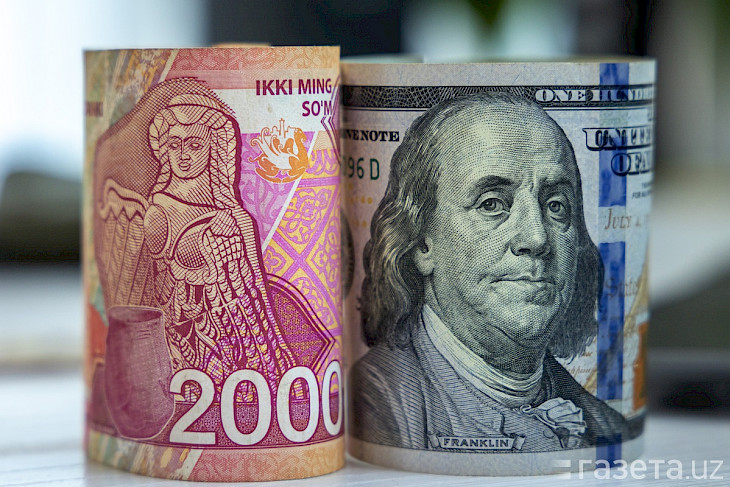Uzbekistan is taking steps to strengthen its economic resilience to external shocks by enhancing the flexibility of its exchange rate regime. According to the findings of a recent mission by the International Monetary Fund (IMF), the country’s authorities have responded positively to recommendations to allow a wider fluctuation band for the Uzbek sum and to use the exchange rate as an automatic stabilizer, Gazeta.uz reports.
The IMF noted that greater flexibility in the exchange rate would be a vital step toward more robust and sustainable economic management. Such a shift would not only help cushion the impact of external shocks, but also:
-
preserve international reserves,
-
encourage businesses to hedge against currency risks,
-
improve the effectiveness of monetary policy transmission,
-
and reduce persistent expectations of currency depreciation.
The Fund emphasized that the Central Bank of Uzbekistan (CBU) should limit its foreign exchange interventions according to the principle of neutrality. This principle dictates that if the CBU purchases domestically produced gold using local currency, it must offset the monetary impact by selling an equivalent amount of foreign currency—typically U.S. dollars—on the domestic market. This helps avoid injecting excess liquidity into the economy, which could stoke inflationary pressures.
Despite substantial foreign currency inflows in 2024, the exchange rate of the U.S. dollar to the Uzbek sum depreciated by only 4.7%, remaining in a narrow range. However, the IMF noted that the CBU sold less foreign currency than it purchased in gold, effectively breaching the neutrality principle. This discrepancy may have resulted in increased money supply and potential inflationary risks.
The Uzbek authorities acknowledged the shortfall in foreign currency sales compared to gold purchases but stressed that the resulting excess liquidity had been sterilized using other monetary tools. Nevertheless, the IMF reiterated the importance of adhering to the neutrality principle on a calendar-year basis to maintain monetary stability.
According to Gazeta.uz, recent months have shown a noticeable increase in the volatility of the exchange rate. From January to April 2024, the average daily fluctuation was around 13.6 sums, while in May and June, it jumped to 36.7 sums. This suggests a gradual shift toward a more flexible exchange rate regime—likely in line with the IMF's recommendations.
In comparison, the fluctuation range during May–June 2024 was 18.4 sums, while in the same period of 2025, it averaged 15 sums. This growing variability may signal a reduction in strict administrative controls over the exchange rate and a step toward a market-based mechanism.
Experts explain that the neutrality principle is essential for balancing gold purchases with currency market operations. Without this balance, the CBU effectively injects unbacked sums into the economy, which can lead to overheating and rising inflation.
A more flexible exchange rate allows the market to respond organically to external conditions—such as commodity price swings, export declines, or geopolitical risks—reducing the need for costly central bank interventions and helping preserve foreign currency reserves.
In addition, a flexible regime can help dismantle entrenched expectations of ongoing devaluation. If businesses and the public observe that the exchange rate can both weaken and strengthen, confidence in long-term macroeconomic stability will likely improve.
The IMF acknowledged that exceptions to the neutrality principle may be warranted in extraordinary circumstances—such as in 2021 following the COVID-19 pandemic or during the early years of the war in Ukraine (2022–2023). However, the Fund urged that such exceptions be governed by clear, transparent criteria to avoid market uncertainty and maintain the credibility of monetary authorities.
The IMF’s recommendations and the government’s willingness to embrace them indicate that Uzbekistan is preparing for more than just technical adjustments in currency policy. What lies ahead is a broader transition to a new phase of monetary governance—one that emphasizes flexibility, predictability, and transparency in central bank operations.
CentralasianLIGHT.org
June 18, 2025

